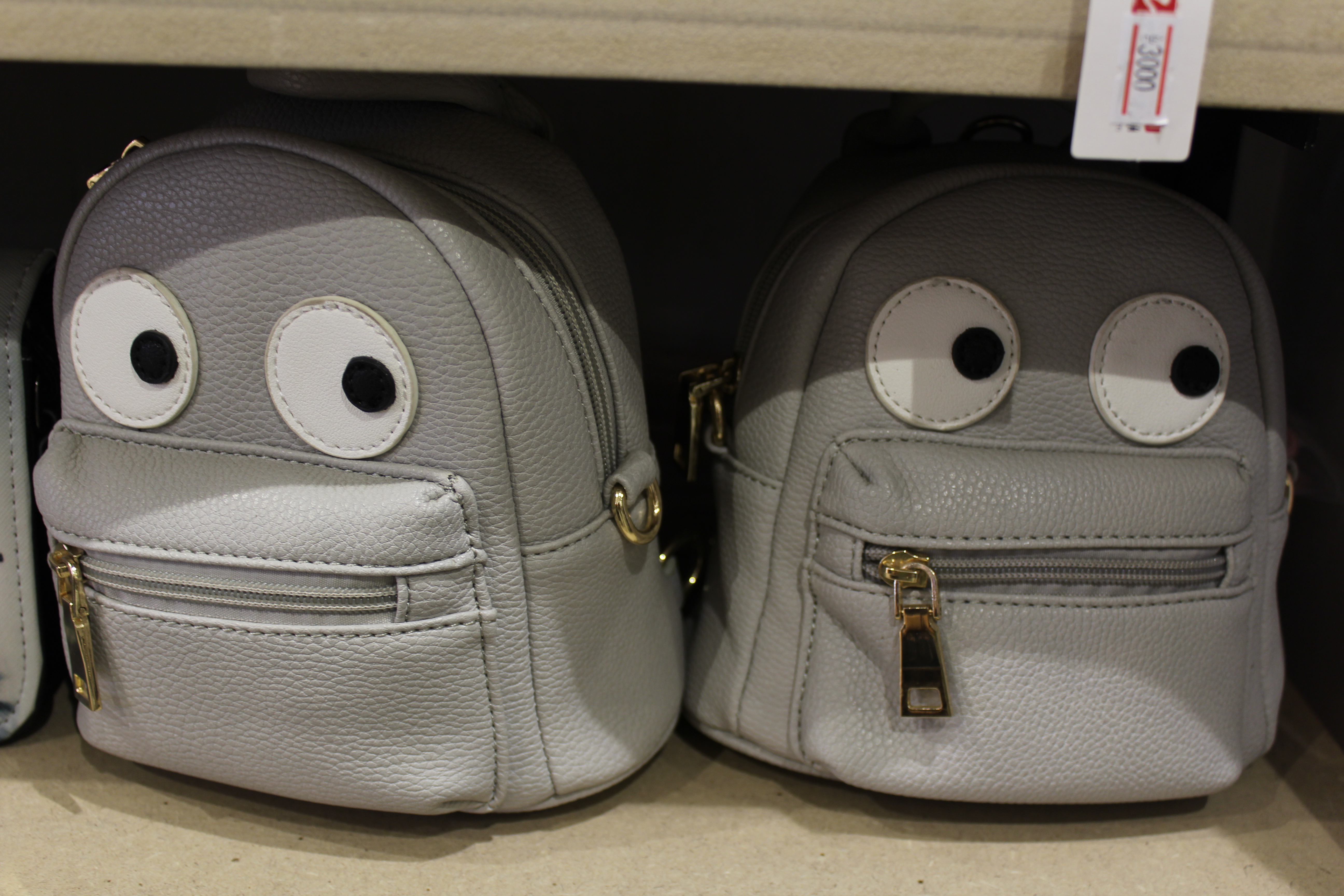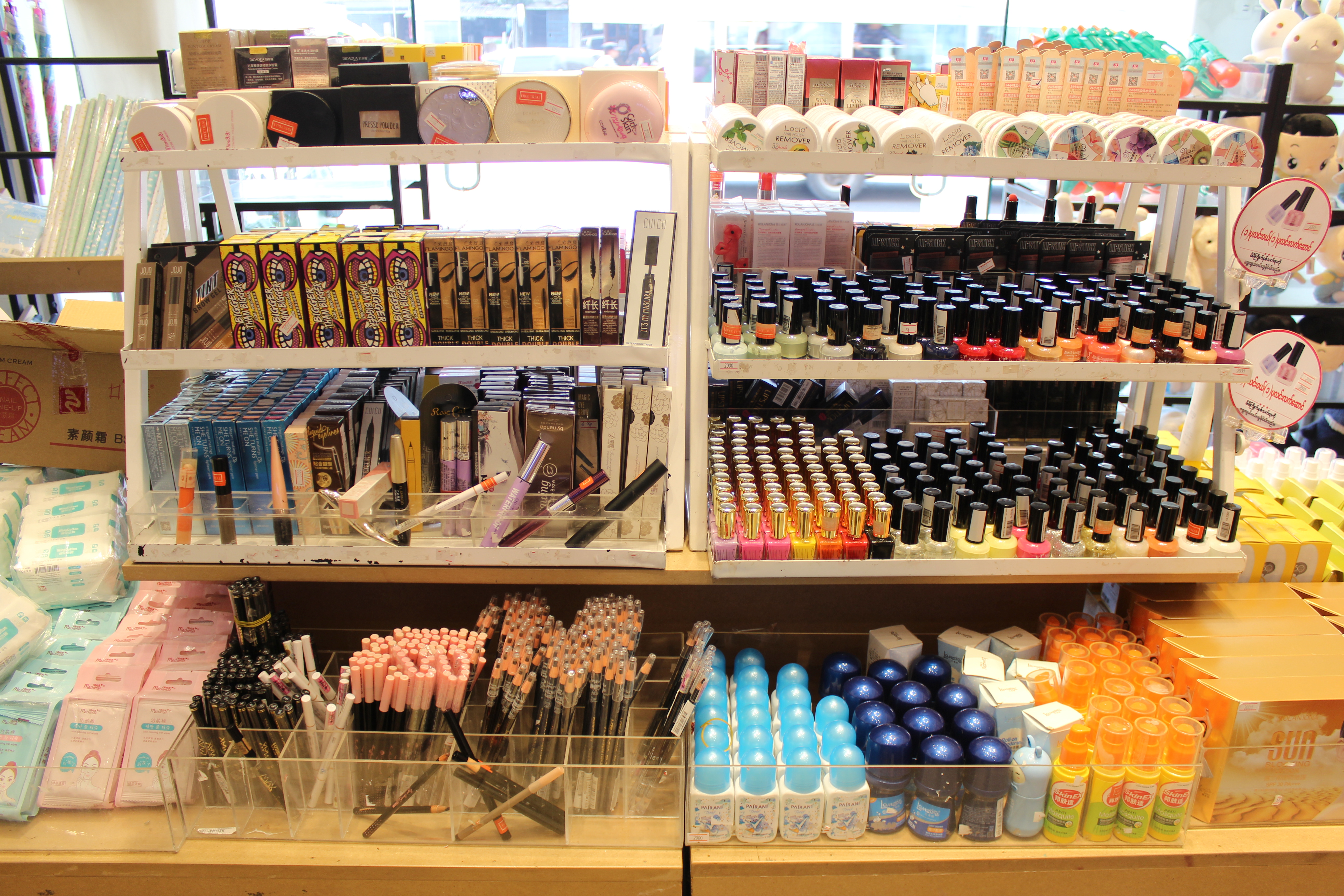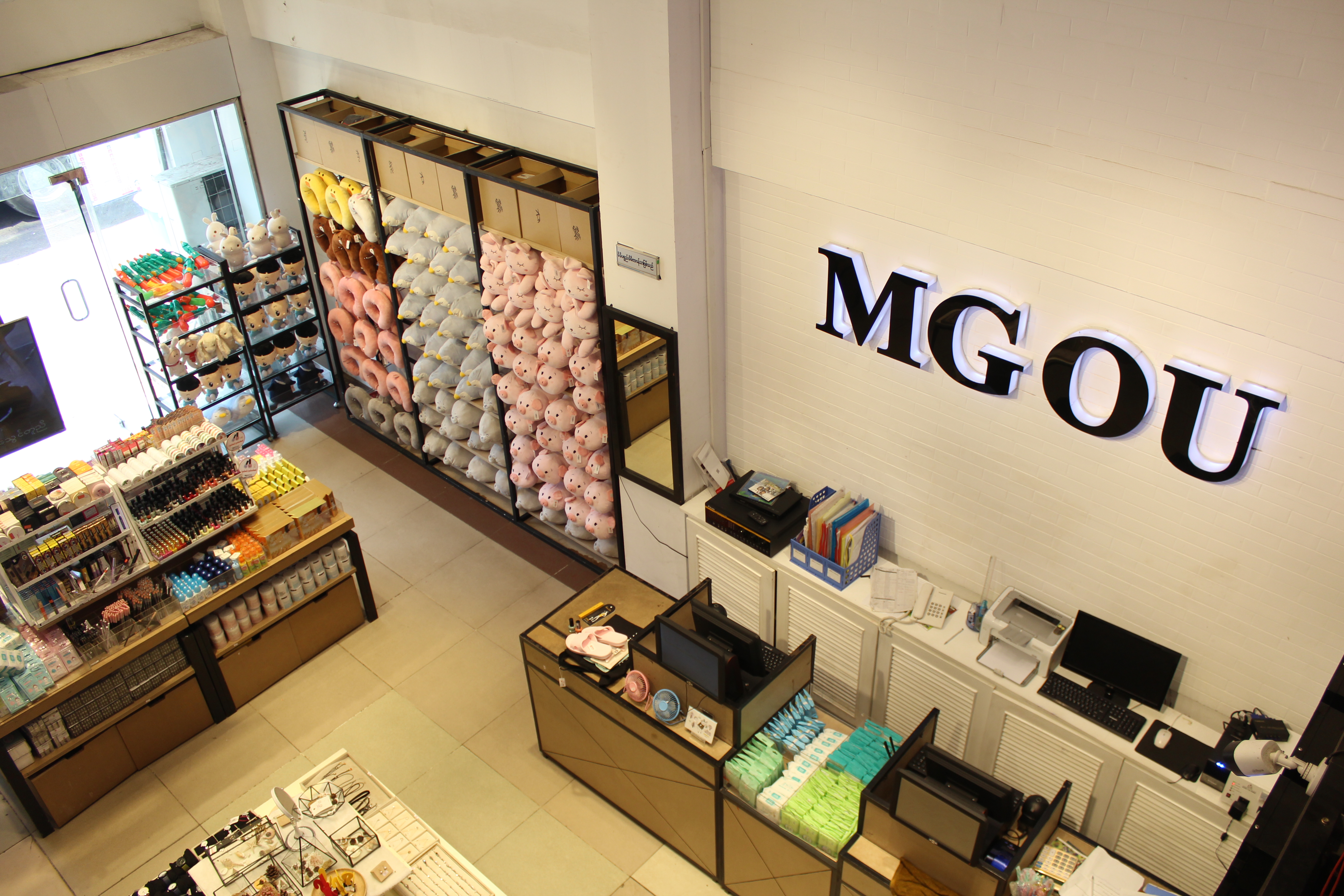Whenever I walk into an MGOU store, my inner monologue can’t help but point out: “Wow, this place is really not terrible.”
The further I venture down the aisles past plush pig dolls, minimalist desk lamps and minion-themed phone accessories, the truer that statement becomes. Two years in Myanmar have left my consumerist impulse malnourished and shriveled, barely kept alive by intermittent visits to Bangkok and Saigon. But now, with a mixture of glee and guilt, I find myself shopping for pleasure in Yangon. How did this happen?

The “M” in MGOU stands for “memory”, and the “GOU” roughly translates from Mandarin to “shopping”. You could interpret the name to mean “Nostalgia Shopping”. However, many Myanmar people pronounce it the way their eyes are trained to see it: “Maung Oo”.
Like its larger competitor Miniso, MGOU is a Chinese brand that has repackaged the “commercial Zen” of Japanese retailers such as Muji and Uniqlo to bring low-cost, functional, normcore products to consumers in developing Asian markets. Most items cost less than K5,000.
“Myanmar consumers don’t have that many options, and they’re hungry for new stuff,” said Su Wai Yee, who also goes by Hillary. Yee is a franchisee of three MGOU stores in Yangon, and she also serves as MGOU’s country representative in Myanmar. “The price point and variety of our products is very suitable for the Myanmar market.”
To Yee, MGOU plays a crucial role in the development of Myanmar’s economy and culture. Before fast-retailing brands like MGOU and Miniso opened here, trendy Myanmar folks were forced to shop abroad or order products online.

“A few years ago, Myanmar people were paying so much for products that shouldn’t cost so much. People were willing to wait two weeks [for things they ordered online], and they were also willing to pay significantly higher than what people pay in other countries. That’s how I knew consumers were hungry for these things. But they just couldn’t find them here,” Yee said.
She says business has been good since Yangon’s first MGOU location opened in the Hledan area in December 2015. There are now four locations in Yangon and one in Mandalay. So what keeps people coming back for more mascara, face masks and temporary tattoos?
First, the stores aim to be visually appealing, both inside and out.

Second, shopping in MGOU is easy. The staff don’t follow you around, and the inventory is orderly.
“[Other low-cost retailers such as] Spirits might have 100 kinds of lipstick, but we have 15 because we pick out the items that will be more relevant to our target audience,” Yee said. “We emphasize ease of shopping.”
And perhaps most importantly, the selection is always changing.
“It’s a fast-retailing model. Every two weeks, we have new products coming in and catering to the changing tastes of the seasons and the consumers and what’s trending,” Yee said.
Her mention of “what’s trending” is crucial. MGOU is a byproduct of the deepening cultural bonds between China, Japan and South Korea and Southeast Asia’s embrace of the mixture.
“Regionally, we develop products based on what’s trending in Korea and Japan. Chinese trends are influenced by Korean dramas, Japanese dramas, music videos and all that stuff. Those things become popular in China and also in Myanmar, too. I guess because of the internet. We all consume similar media,” she said.

However, unlike Miniso – a global giant with hundreds of stores in China, the Americas and Australia – the MGOU franchise does not pretend to be Japanese.
“The vision of MGOU is to be known as a Chinese brand, to be globally accepted as offering good-quality Chinese products,” Yee said.
When all these factors add up, they deepen habits that were far less visible in Myanmar a couple years ago: non-wealthy people are participating in international trends, and they’re buying things they like but don’t need.

“When people come in, they see the price point is lower than they expected. Most people end up buying one or two things. It’s very difficult to come into our store and go out empty-handed.”
This might not sound “cool” to people who are disillusioned with mass consumerism. Wasn’t Myanmar culture better before?
Hillary Yee is ready for that question: “If Myanmar people want these things, they should be readily available. They shouldn’t have to leave the country to get the things they want.”
Furthermore, Yee’s quest to bring international trends to Myanmar is complemented by her other business, which produces Myanmar clothing with a modern twist.
“I’m very proud that Myanmar is one of the few countries where people wear traditional clothing on a daily basis. I think that should be a culture that we retain. But we shouldn’t be stuck in the past. Our traditional clothing can be relevant to modern times, and it can even be known regionally or internationally. So that’s the reverse of what I’m trying to do at MGOU,” she said.

Yee says the company hopes to open 100 stores in Myanmar over the next two years, and she doesn’t expect to do it alone. Dozens of potential Myanmar franchisees have called into the company’s local hotline saying they want a piece of the MGOU pie. On March 17, the company will host between 150 and 200 people at a seminar titled “Interpretation of Fast-retailing Business Model – MGOU Franchise Discussion Event” where attendees will learn what it takes to bring trendy tchotchkes to the masses. (Register here.)
If all goes well, communities around Myanmar will join Yangon and Mandalay in enjoying styles from this decade. We may never have to go to Bangkok again. This is the future Myanmar shoppers want.




